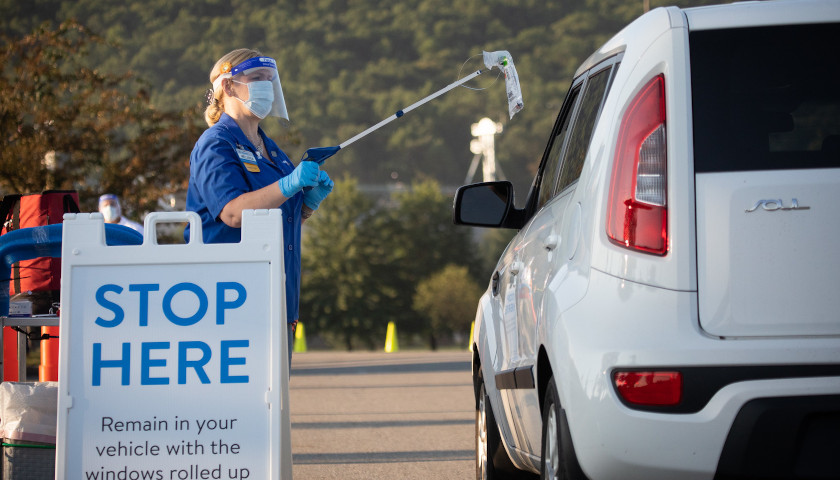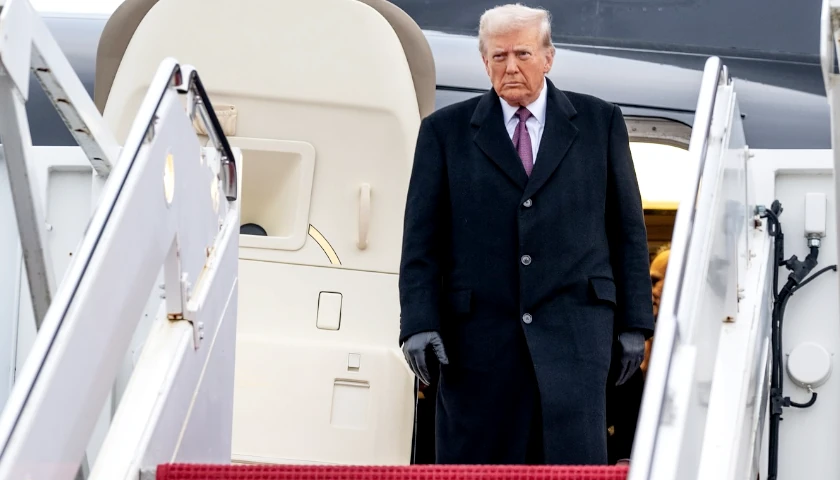by Greg Piper
Three and a half years after the start of the COVID-19 pandemic, American medical journals are still calling out what they consider commonly shared misinformation on vaccines, masks, transmission and viral origins, sometimes promoted by health professionals.
Yet voluminous research and real-world experiences over that span suggest the journals themselves are promoting outdated, unsupported or exaggerated COVID claims, if not outright misinformation.
COVID researchers around the world piled on a Journal of the American Medical Association publication for running a University of Massachusetts Amherst study of physicians with large online followings who shared purported misinformation, including that COVID could have leaked from a lab.
The August 15 JAMA Network Open study “should be retracted” for its “egregiously false claims,” University of California San Francisco epidemiologist Tracy Beth Hoeg wrote in a lengthy thread on X, formerly known as Twitter. “It’s an embarrassment to our profession.”
The UMass public health researchers’ reliance on the Center for Disease Control and Prevention as the arbiter of misinformation stunned Francois Balloux, director of the University College London Genetics Institute.
The CDC’s views “legitimately but often belatedly” changed over time and its guidance was “often in variance” with other authorities including the World Health Organization and its European counterpart, Balloux wrote in an X thread. “It’s the ‘scientific’ equivalent of literal biblical interpretation hermeneutics, but with CDC guidance as the holy book.”
The study says about a third of COVID-related deaths “were considered preventable if public health recommendations had been followed,” a task frustrated by the 52 physicians nationwide in 28 specialties identified by the researchers as driving COVID misinformation from January 2021 to December 2022.
Most posted vaccine misinformation (81 percent) and multiple categories of misinformation (77 percent), which also include medication, masks and “other (i.e. conspiracy theories),” while 38.5 percent of them posted it to five or more platforms.
Misinformation examples include: COVID vaccines are “ineffective” against transmission, myocarditis “outweighed the risk of vaccination” in children, masks “interfered with social development” in children, pre-COVID research shows masks “do not prevent the spread,” COVID statistics were “deliberately falsified,” and SARS-CoV-2 “originated in a laboratory in China.”
The authors hedge their language twice with the phrase “scientific evidence at the time,” for claims that lab-leak is plausible and COVID vaccines are “harmful.” They write off the FBI and Department of Energy’s conclusions in favor of lab-leak as a “theory,” while claiming “scientific evidence and a more recent report” from the Office of the Director of National Intelligence show “lack of evidence” for a leak and “favor a zoonotic origin of the virus.”
Rutgers University molecular biologist Richard Ebright, who testified in Congress on lab-leak and U.S. funding of the Wuhan Institute of Virology, wrote off the study as an “oped” by “ignoramus authors” who “misdescribe plausible and probable hypotheses” on origins. JAMA Network Open editors “clearly place politics and ideology over science and truth,” he said.
UCSF epidemiologist Vinay Prasad objected to the authors’ claims in an analysis citing his and Hoeg’s research on vaccine-related myocarditis and the CDC’s repeated statistical errors, and the Cochrane mask meta-review of 78 randomized controlled trials. People who invoke misinformation are “often completely ignorant of science and truth,” Prasad said.
The study cites the CDC data tracker, which doesn’t use death certificates and has “repeatedly over-counted deaths in children,” Hoeg said, pointing to a different CDC database that puts deaths “from” COVID nearly 150,000 lower. The CDC last year acknowledged over-counting deaths, especially pediatric, by about 72,000.
Hoeg said the researchers’ myocarditis claim ignores previously infected adolescents — the subject of her peer-reviewed study in the European Society for Clinical Investigation’s flagship journal — and their comparison of deaths rates by vaccination status ignores the better underlying health of vaccinated people overall.
“‘Misinformation’ seems to be defined here as ‘not following the party line,'” veteran medical journalist Liz Highleyman wrote in an X thread, calling mask efficacy, origins and boosting previously infected young people legitimate debates. She used the forehead-slap emoji in response to the study’s definition of misinformation as contradicting the CDC.
JAMA Network media relations did not answer queries about the thoroughness of the peer review for the paper and the process for seeking a retraction. Corresponding author Sarah Goff didn’t answer queries for her response to the criticism.
The August issue of the Annals of Internal Medicine, published by the American College of Physicians, includes a case study on English- and Spanish-language initiatives to counter COVID “rumors” and misinformation early in the pandemic, including that official COVID death counts include non-COVID deaths and vaccines may provide more risk than benefit during pregnancy.
One of the study’s authors is Renee DiResta, research manager for the Stanford Internet Observatory, which works with the Department of Homeland Security’s Cybersecurity and Infrastructure Security Agency to police purported mis-, dis- and mal- information. Her boss Alex Stamos has acknowledged she “worked for the CIA.”
“ThisIsOurShot and VacunateYa [Get Vaccinated Already] developed a multifaceted education program using the latest messaging research and behavioral science … informed by social media monitoring projects” including SIO’s Virality Project, the paper says. Last month, a federal judge blocked the feds from working with SIO and Virality Project among others as the First Amendment lawsuit by Missouri and Louisiana proceeds.
The researchers called for a “sustainably funded, independent public–private partnership” along the lines of the Elections Infrastructure Information Sharing and Analysis Center, a federally funded partnership between the Center for Internet Security and CISA. Congressional Republicans allege CISA uses EI-ISAC as its “mouthpiece” to circumvent legal restrictions.
“Here is your peer reviewed guidebook on how to censor COVID ‘misinformation,'” former Ecohealth Alliance Vice President Andrew Huff, whose nonprofit passed U.S. taxpayer money to the Wuhan lab and claims it “developed” SARS-CoV-2, said on X.
“When a rent-seeking organization that has been historically shady with their financial disclosures, politics, and [conflicts of interest] with industry promises to protect ‘the public’ from ‘misinformation,’ we (esp doctors) should be afraid. Very afraid,” University of Chicago clinical professor of medicine Westby Fisher wrote on X. He’s a leader in a rival organization, Practicing Physicians of America.
Just the News received an out-of-office auto-reply from corresponding author Richard Baron, president and CEO of the American Board of Internal Medicine, when asked for his response to the criticism of the paper. His staff did not respond.
– – –
JusttheNews journalist Greg Piper has covered law and policy for nearly two decades, with a focus on tech companies, civil liberties and higher education.
Photo “COVID Testing” by Governor Tom Wolf CC BY 2.0.





